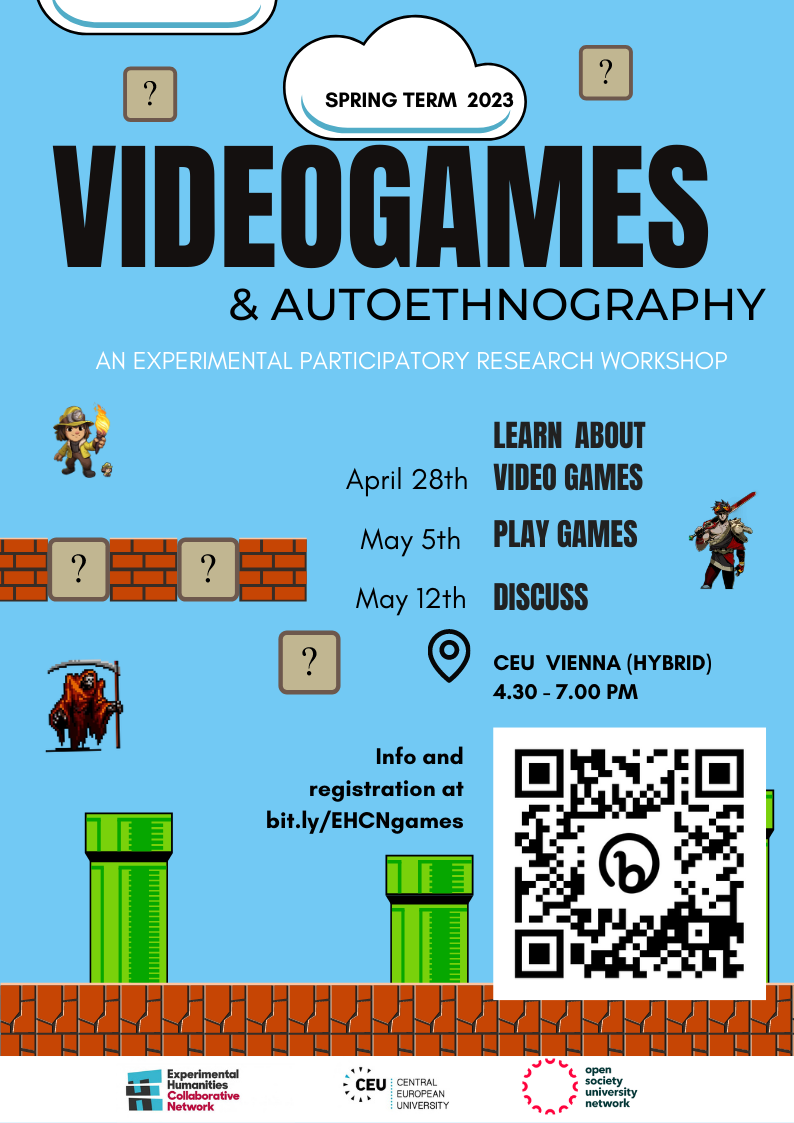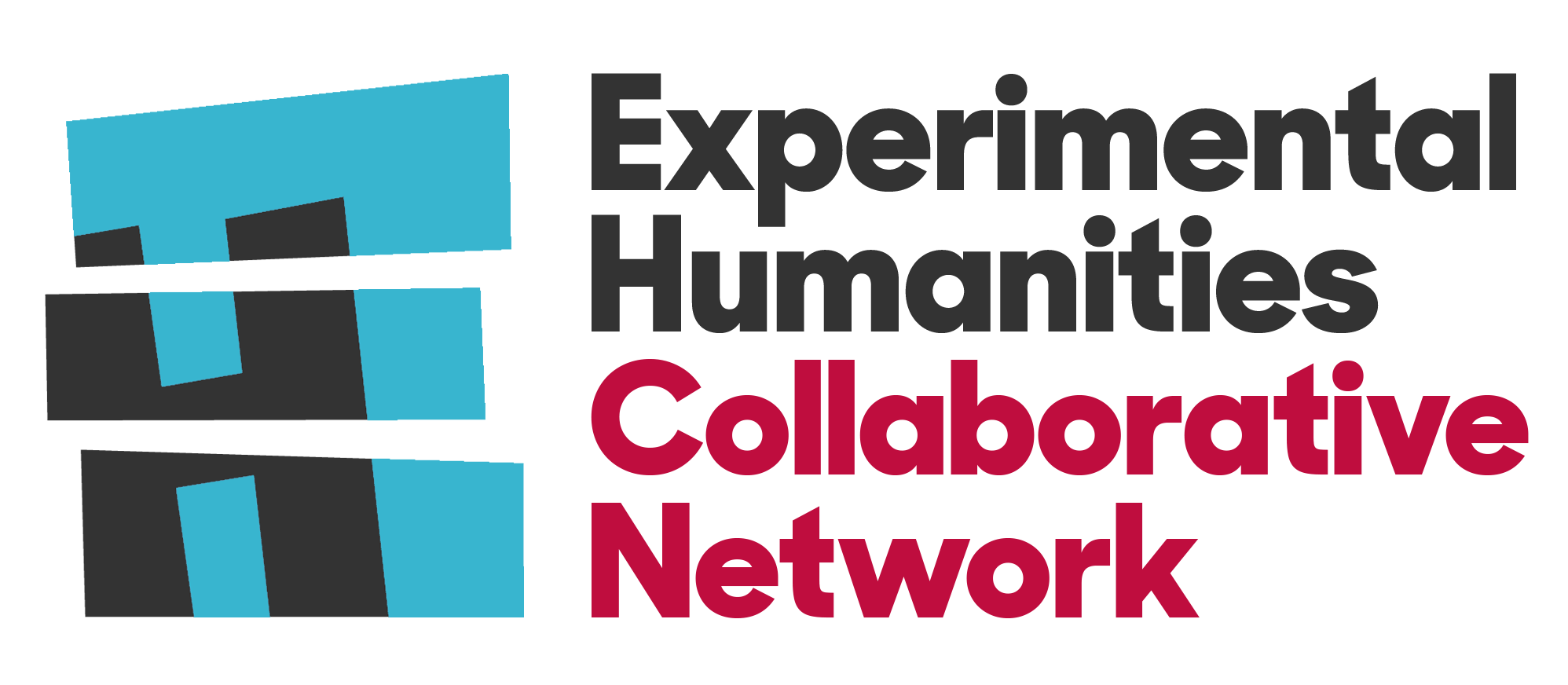Welcome to The Experimental Humanities Collaborative Network
Video Games & Autoethnography
This will take place at CEU Vienna this Spring (see description for times).
Hybrid format available
This is a 3-day workshop about using autoethnography to study video games. If you’re a videogame enthusiast, you can incorporate them into your academic work from a huge variety of perspectives, across disciplines and using many different methods. Autoethnography is a qualitative research methodology that involves examining personal experiences and cultural contexts in order to gain insights into cultural phenomena – which is very useful for game studies. This workshop aims to familiarize the participants with some of the key issues in game studies and autoethnographic research, then engage in hands-on learning, practising the skills in question.
Open to all, hybrid format available. No prior knowledge required.
Workshop Program:
Session 1 - Friday April 28th 16:30 - 19:00
Seminar Session: Game Studies and Autoethnography
Through a seminar-based session, we will situate video gaming in its historical and cultural context, introduce the field of game studies and some of the key topics in its literature, introduce the practise of autoethnography and discuss its application to video game studies.
Session 2 - Friday May 5th 16:30 - 19:00
Practical Session: Gaming Session and Data Collection
Based on the theoretical grounding of the first day, the second day of the workshop would move on to the practical aspect: hands-on learning in which the participants would play and watch others play video games, discuss, reflect on and collect data about their experiences, and generate ideas for potential autoethnographic pieces about video games.
Session 3 - Friday May 12th 16:30 - 19:00
Data Analysis Session
This session will be used to analyse the experiences of playing videogames and doing ethnography in a workshop setting. We will look at fieldnotes sets individually and in relation to the others trying to determine how the collected data can be used for further research. Finally, we will discuss potential outcomes of the material selected.
Outcome: If participants agree to share their work, the creation of a shared blog/webpage/channel will be considered to gather all the materials and create an archive accessible to future students. The format of the final piece will be open, and the use of interdisciplinary approaches will be encouraged, including short photo essays, visual essays, videos, recordings, and written texts.
For questions, contact us at:
Rauleac_greta@phd.ceu.edu
Cartlidge_James@alumni.ceu.edu


